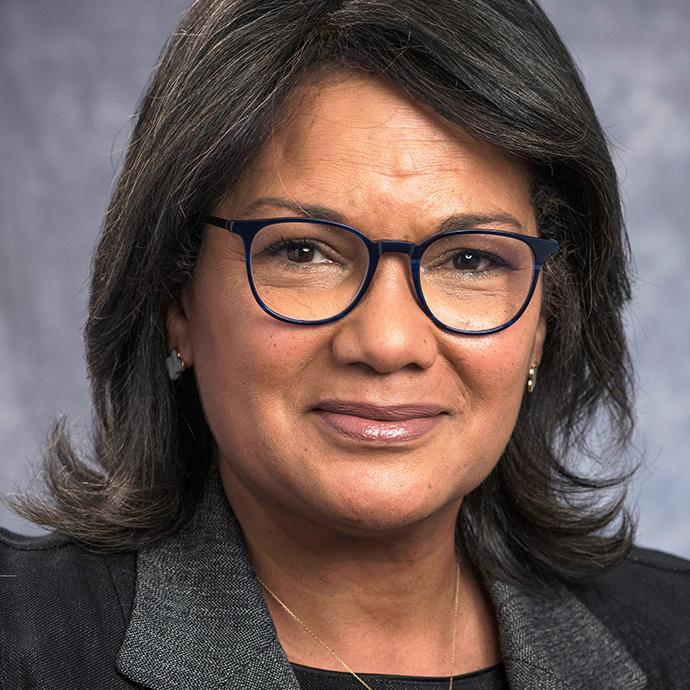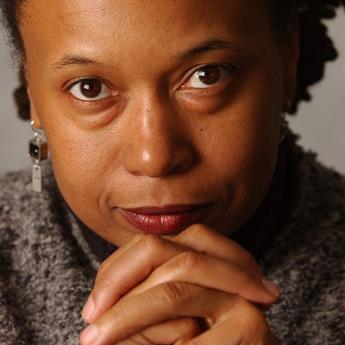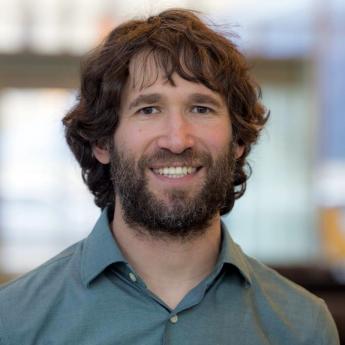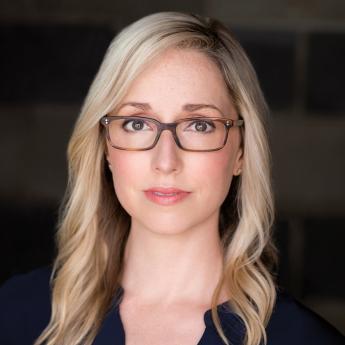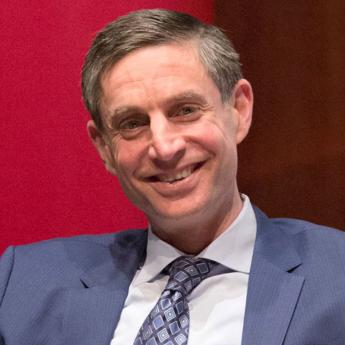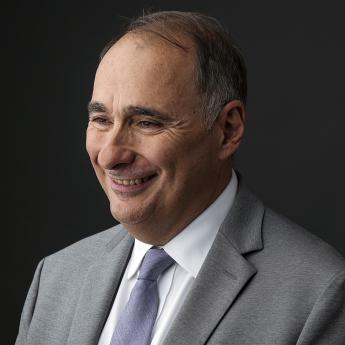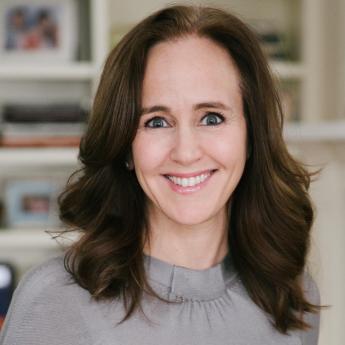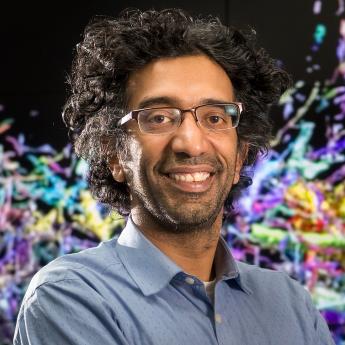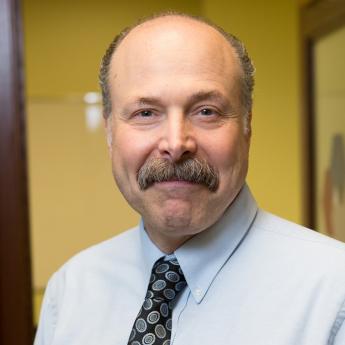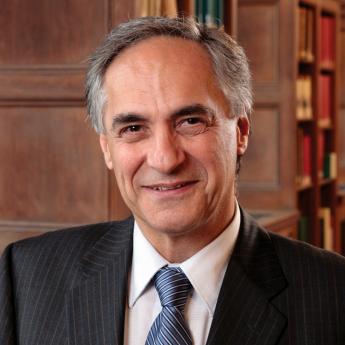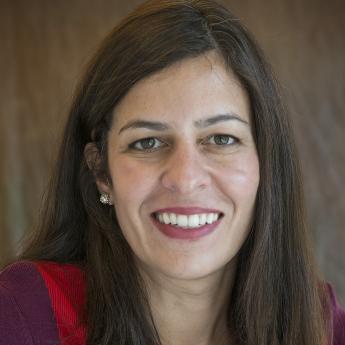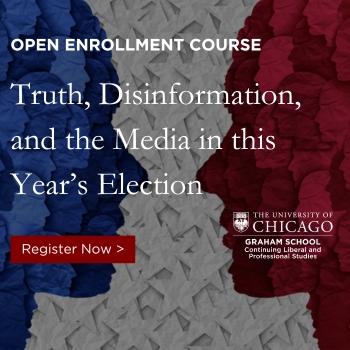Show Notes
What are we going to do about police misconduct? Many are calling for a total defunding of the police, while others are looking for systems to enhance accountability through reform. Many have pointed to civilian oversight agencies, but University of Chicago legal scholar Sharon Fairley says that these agencies can often become corrupt.
Last year, Fairley completed the most comprehensive study of civilian oversight agencies ever conducted. Its insights are exhaustive for how to make these agencies effective at holding police accountable. In this episode, we go through the history of civilian oversight and explain some of the most important reforms that Fairley suggests.
Subscribe to Big Brains on Apple Podcasts, Stitcher and Spotify.
(Episode published July 16, 2020)
Related:
- Police oversight enters ‘watershed era’ of change amid cries for accountability
- Police reform steps that must be taken immediately—Chicago Tribune
- After decades of police corruption, can Chicago finally reform its force? WBEZ
- One year after Van Dyke conviction, how is Chicago handling police misconduct? WTTW Chicago
Transcript:
Paul Rand: What are we going to do about police misconduct?
Tape: George Floyd. George Floyd. George Floyd.
Paul Rand: Police around the country kill around 1,000 people a year. Black people are more than three times as likely to be killed by police than white people. While police violence has been a distinctly American problem for decades, this year it’s come to a head.
Tape: No justice, no peace. No justice, no peace.
Paul Rand: Protesters around the country are calling for cities to defund the police and create real accountability. In fact though, there already is a system meant to hold police accountable for brutality, but is it working? The head of the Fraternal Order of Police is pushing back against calls for greater civilian oversight of the police department. Civilian oversight agencies are responsible for investigating police brutality and misconduct and making recommendations about whether officers should be disciplined or even fired.
Sharon Fairley: It’s really become a basic part of police accountability systems for most of the big cities in the United States.
Paul Rand: That’s Sharon Fairley, a professor from practice at the University of Chicago Law School and one of the leading researchers in the country on civilian oversight agencies. Now, if you live in a major American city, you probably have one of these agencies looking over your police force, but the question is do they actually work.
Sharon Fairley: You have this vicious cycle. There’s a scandal, you implement some reforms, and then everything seems good for a while until the next scandal happens.
Paul Rand: From the University of Chicago, this is Big Brains, a podcast about the pioneering research and pivotal breakthroughs that are reshaping our world. On this episode, why civilian oversight agencies have struggled to hold police accountable for decades. I’m your host, Paul Rand.
Paul Rand: Before coming to the University of Chicago, Sharon Fairley spent eight years as a federal prosecutor and was Deputy Inspector General in Chicago. She describes herself as a person who works for justice from inside the system. Some of her most important work has been in the agency responsible for holding Chicago’s police accountable, all through civilian oversight.
Sharon Fairley: Civilian oversight, its concept is sort of grounded in the basic concepts of democracy, right? We give police departments this really important, very serious power to take life and liberty, and we as civilians, as citizens want to have a say in how they execute those powers.
Paul Rand: The issue of police accountability is as old as police departments themselves, dating back to the mid-1800s. The idea of civilian oversight agencies to hold police accountable, well that’s been around for decades. To understand that long arc of history and issues in civilian oversight agencies across the country, we’re going to start with the story of one city in particular, Chicago.
Sharon Fairley: When you look back into what happened to Chicago, there was actually civilian oversight as early as the 1900s. And then we also started the idea of having civilians who actually investigated police misconduct here in Chicago in 1970 which was in reaction to a number of scandals that had taken place in the late ‘60s and early 1970s.
Tape: Thousands of Chicago cops and National Guardsmen, a flammable mix on Michigan Avenue that would later be called a police riot.
Paul Rand: In 1974, Chicago created the Office of Professional Standards, also known as OPS. It was the city’s first attempt at an agency staffed by civilians that would investigate complaints against Chicago’s 13000-member police department.
Sharon Fairley: But it was still an internal department, meaning the head of that group still reported to the superintendent so that there was question around how independent that group could really be.
Paul Rand: OPS was part of the police department, not to mention the “civilians” investigating police were often ex-cops themselves. This is still a major issue in many oversight agencies today.
Sharon Fairley: Where you have a commission, a group of individuals who may review investigations that are actually conducted by the department itself and that’s a very benign form of oversight.
Paul Rand: This system of benign oversight is what’s led to decades of police scandal and reform. In 2008 after another violent scandal and coverup, the city responded by creating a new agency called the Independent Police Review Authority to replace OPS.
Sharon Fairley: IPRA came online in 2008, but really never got to be independent. Literally all the people that were working inside the department at OPS were just moved over into this new supposedly independent agency. All the systems that IPRA had were continued to be tied to the police department.
Paul Rand: Without an independent body, it was only a matter of time before the pattern repeated itself, and in December of 2015, the police murder of 17-year-old Laquan McDonald was released on video.
Tape: Jason Van Dyke, the officer charged with Laquan McDonald’s murder, had 19 complaints before shooting and killing the teen, including 10 for use of force. None of the complaints resulted in disciplinary action.
Sharon Fairley: So of course when the Laquan McDonald crisis erupted in 2015, the agency was just completely under fire for its lack of independence and its lack of really strong, effective oversight of the police department.
Tape: The city needs answers about what happened in the case of Laquan McDonald's tragic and available death. But this is bigger than one particular incident.
Paul Rand: This is where Sharon Fairley steps into the story.
Tape: So I'm appointing Sharon Fairley as head of IPRA.
Sharon Fairley: IPRA’s reputation had been so badly damaged that it really could not survive.
Tape: Say goodbye to the Independent Police Review authority.
Tape: As of now IPRA does not exist and all police involved shooting will now be investigated by COPA, the Civilian Office of Police Accountability.
Sharon Fairley: COPA has the power to independently investigate misconduct, but they can only make a recommendation to the department about what should happen with the officer. I think we see city’s really struggling when they only have that kind of oversight because it’s just not powerful enough.
Paul Rand: Once COPA debuted in 2017, Fairley handed it over to new leadership.
Sharon Fairley: Because I had been hired and put in that job when it was IPRA, I felt that I was a drag on the agency once COPA got set up. I really felt that it needed a new leader to really take it forward in the best way.
Paul Rand: But as you may have guessed, even COPA is still far from perfect. So what does this story tell us about the effectiveness of civilian oversight agencies? And what lessons of Chicago stories reflect in civilian oversights around the country? And is there a way to change these agencies to make them better? That’s after the break.
(ADVERTISEMENT)
Paul Rand: In the past several decades, civilian oversight agencies have proliferated across the U.S. If you live in a major city, there’s a good chance you have one. In 2019, Fairley completed a first-of-its-kind survey looking at agencies in the 100 largest cities in the country. No other report has ever looked this comprehensively at these agencies.
Sharon Fairley: Part of my goal was to really understand what was happening the land of civilian oversight to be able to assess what these trends are and how well these agencies were doing, also to show that civilian oversight is no longer kind of this weird thing. It’s pretty prevalent. Certainly most of the larger cities have at least some form of oversight at this point. It’s really become a basic part of police accountability systems for most of the big cities in the United States.
Paul Rand: In reading the report, I think you said that they were “snowflakes.” That’s not the new definition of snowflakes. It’s the old definition of snowflakes when it meant that no two of them really were alike. Is that right?
Sharon Fairley: That’s correct. So part of the challenge over these decades is that every jurisdiction has put together the kind of oversight mechanisms that they feel work best. So there really hasn’t emerged one specific right way to do it. So that’s why every city is a little bit different, but there are some themes about what’s really important to having effective investigation of police misconduct.
Paul Rand: Some of those themes are resources…
Sharon Fairley: The agency needs to be able to keep up with and have resources to be able to do the job well.
Paul Rand: Access to information …
Sharon Fairley: If an oversight board cannot get access to the department’s reports and information and can’t get access to witnesses who can tell them about what happened, then they can’t really be effective either.
Paul Rand: Independence …
Sharon Fairley: You need to be able to demonstrate that the agency does have the ability to act independently from the police department.
Paul Rand: Trust …
Sharon Fairley: It is worth nothing if the community they serve don’t trust what’s going on.
Paul Rand: And transparency.
Sharon Fairley: So let’s just start with the transparency issue, right? So when we look back to the Laquan McDonald crisis, there was obviously a fatal killing and that was really bad, but part of what I think made it a crisis was the coverup, was the fact that the city was unwilling to release the video and did not do so for over a year. That was a transparency issue, right? So lack of transparency in the accountability system really undermines trust and has a very, very negative impact on trust. So it’s important that these civilian entities be able to have the power to be transparent.
Sharon Fairley: Now, sometimes that actually can be impaired by state law. There are some state laws that actually prevent disclosure of police disciplinary records for example. So one of the things when I took over IPRA, one of the first things I did was to start immediately putting the summary reports out in the public and making them publicly available because I felt that the best way to gain that trust is to say, “Look, here’s what we did, here’s how we investigated, here’s what we found, and here’s how we analyzed it.”
Paul Rand: As Fairley says, transparency and trust go hand in hand, but trust is also driven by who exactly makes up the agencies.
Sharon Fairley: So there’s time where they were all Mayoral appointees, but now we’re seeing when you see these ordinances creating these boards, they’re providing more dictates about who these boards should be made up of, that they should be members that are representative of the community that they serve. Sometimes they are dictating that they have, for example, youth members so that young people can be represented. Sometimes they dictate that there are specific types of capabilities and experiences that they want on the board. They want to make sure that they have the complement of lawyers, police experts, criminal justice experts, faith-based leaders. So we do see these boards sort of being defined in a way to be more community-representative.
Paul Rand: Around the country, people are calling for civilian oversight agencies to also include people impacted by police violence. That logic is their expertise is a knowing what it’s like to be on the other side of policing. At the same time-
Sharon Fairley: There’s a common sort of complaint certainly among police officers and unions that civilians can’t assess what they do effectively. It’s like, “You haven’t walked in my shoes. How can you judge my behavior? You haven’t been in these situations.” I hear that, but actually with training, these are professionals. These are professional investigators, right? One of the things that I wrote about when I looked at these agencies across the country is this idea of how civilian these agencies are, “civilianness” as a cultural sort of dichotomy. So agencies that are sort of too civilian may not garner sufficient respect from the officers that they oversee because the officers don’t think that they have the right perspective on law enforcement, but the agencies that adopt too much of a law enforcement-like culture won’t have the respect of the community members that they’re serving because they’re going to be perceived as being sort of too close to the law enforcement entity that they’re overseeing.
Sharon Fairley: So you’ve got to strike the right balance there. Agencies are approaching that in a different way. Some agencies say, “OK. We’re not going to hire former law enforcement officers at all.” Some say, “We’re not going to hire officers who’ve worked for the department that we’re overseeing, but if they worked somewhere else, that’s fine.” So there’s lots of different ways that agencies are trying to address that.
Paul Rand: In Chicago, activists have been calling for the city to replace COPA ever since Fairley built it, and part of what they want is a new body that would be fully elected by voters rather than public officials. The mayor so far has opposed this, but beyond who was part of a civilian oversight agency and how they got there, Fairley says it doesn’t matter—unless they have independence.
Sharon Fairley: So COPA can only make a recommendation. If the superintendent disagrees, then they do what I call, they do this dance. Right? I call it the dance. They have to confer to sort of see if they can reach an agreement, and if they don’t, then the matter is then given to a single person of the Chicago Police Board to sort of decide which side they’re going to take. I think that’s really inappropriate. If you have an officer-involved shooting that COPA has done this well-done investigation, make a recommendation, and find the officer did something wrong and then the superintendent disagrees, you shouldn’t have one person of the police board saying, “Oh, no. I don’t like what COPA did,” and be able to throw all of that out.
Sharon Fairley: Then moving on to the police board, I think that the way the police board works, there are also some issues with that. So for example, when they have a hearing about an officer’s misconduct, they hear all the evidence about whether or not the officer did something wrong as well as testimony about whether or not, how the officer should be punished. So what you have is you have all this testimony about the officer’s guilt and then you have his buddies, his partners, his wife coming in and saying, “Oh, he’s such a good guy. I really like him.” So the police board hears all that before they determine whether the guy did something wrong.
Sharon Fairley: So that’s just inconsistent with proper justice. Right? So this is something that I brought to the police board and heard nothing back, but this is just an example of some of the cracks that I see in the current system. So this is why I say that we can take this new ordinance that’s on the table and create this big oversight board, but until you fix these other problems, that’s going to be like ... I don’t know how much it’s going to help.
Paul Rand: But to fix the problems, you need political support.
Sharon Fairley: Political support for police accountability is really important. If you look at our history here in Chicago, they only really did it when their hand was forced. Right? Their hand was forced in 1960 when the board was created, in 1973 when OPS was created, and so on and so forth. So unless you have an administration that really understands and is committed to reform, it’s always going to be an uphill battle.
Sharon Fairley: So now, unions, ugh. I mean it’s clear that by and large unions are an impediment to accountability. There’s just no question, particularly against civilian oversight. A lot of times we have these collective bargaining agreement provisions that have a negative impact on accountability. So then we have to go through this process of renegotiating those. That’s always going to be a challenge too.
Paul Rand: Coming up, why Fairley says the issues of effective oversight go way beyond cities—all the way up to the federal government.
Paul Rand: Despite the proliferation of these civilian oversight agencies, police killings aren’t going down and when they do happen, the vast majority of officers don’t face consequences for their actions. So what does that say about the effectiveness of these agencies and how do you even measure effectiveness?
Sharon Fairley: Yes, so that’s a really big question about how much of an impact does civilian oversight actually have on the behavior of officers, right? So if you don’t have a system that results in robust and consistent discipline, whether it’s civilian-based or not, you’re not going to have a sufficient deterrent to these incidents. In my view, the issue with these use-of-force incidents and brutality incidents that we’re seeing is not about civilian oversight. It’s about the law and legal rules that govern use of force that need to be strengthened. That’s like a whole other issue, but that, to me, is the bigger problem.
Paul Rand: In other words, Fairley is saying that civilian oversight agencies cannot possibly be effective in holding police accountable for violence without changes in much higher levels of government.
Sharon Fairley: Right. So there’s three sources of law when it comes to defining how and when an officer can use force when making an arrest. So the first is the Constitution. The U.S. Constitution has the Fourth Amendment that says citizens should not be subjected to unreasonable seizures. So a use-of-force incident under the law is considered a seizure. So we have this body of law that’s created around interpreting the Fourth Amendment, and unfortunately, that sets a very, very low standard because the way the Supreme Court has ruled in these cases.
Sharon Fairley: So that’s one level. The reason why that’s an important source of law is because that’s a source of law that’s typically invoked when someone sues an officer for a use of force, right? They have to prove that it was a constitutional violation, and often that’s a very high bar to meet.
Sharon Fairley: The second source of law are state statutes. So most states, I think it’s up to maybe 42 out of the 50 states, have a statute on the books that governs when and how officers can use force. Those statutes also are pretty much behind the 8 ball. Many of them are just codifying the low constitutional standard and don’t really create a big, enough constraints around officers. So there is some movement we’re seeing on that though. For example, last year, California actually changed their statute and made it much more restrictive on officers, in terms of how they can use force. We also see some improvement in the law in Washington. Washington State improved their law. What was interesting what happened by Washington, it was this change in law was largely driven by a group of activists who went out and got enough support to do a ballot initiative that was then codified into law. So that’s where activism really can work to change law.
Sharon Fairley: Then of course the third set of legal rules that govern use of force are the departments’ policies themselves. Each of the 18,000 police departments that exist across the United States has a policy governing how people can use force. Those tend to be the most restrictive of the legal rules around force. So that’s where we can have the most immediate effect on these use-of-force incidents.
Paul Rand: So if we come down to this, and I love the way you just broke down those three buckets, obviously we’re not going to change the Constitution, at least any time soon to deal with these issues, but state statutes and department policies are things that are making an impact and being changed. But the whole concept of civilian oversight, they may help drive these, but unless those two entities are changing some of these things, then the oversight groups are going to have a really hard time even being effective. Is that accurate?
Sharon Fairley: Yes, because when you think about it, the oversight entities, all they can do is enforce the rules that are in place at the department. So if those rules aren’t as restrictive enough, then they can’t hold officers accountable. They can only hold officers accountable for breaking a policy. That’s one of the reasons why we have this ordinance on the table now here in Chicago to create this oversight board that actually will have the power to define policy so that there is this independence, the actual ability to make change as opposed to only being able to make recommendations that the department can then either choose to take or ignore. My view is as long as the community feels that they need that, they should have it because if that’s what’s going to ... Because trust is so important, we need a system that can be trusted.
Paul Rand: I mean it just sounds like such a Herculean task, and reform has been talked about forever. Is it feasible to reform? And if so, where does that start, at the federal level, at the state level, the departmental level? That’s a lot of things to get lined up, and then you’ve got to have a well-functioning oversight board. How does all that get done in the environment that we’re now in?
Sharon Fairley: Yeah, I mean so I guess the one thing I would say about what’s going on right now is that I’m really encouraged because we see many city administrations actually having more serious conversations and debates about some of these challenges that have brought in the past. The idea of defunding, we see a lot of cities are reducing their department budgets right now in reaction to what they’re hearing and because they’re seeing that people really want the scarce resources they have deployed into their city in the way it can work the best to solve the problems that we have. So I’m optimistic that reform can actually happen.
Sharon Fairley: That being said, we know that reform is a long-term business. But in the meantime, what you have to do is put the systems in place to hold the behavior in check.
Paul Rand: You mentioned a few moments ago this concept of defunding the police. That wording, that movement is getting traction or seems to be getting traction across all corners of the country in one form or another. I don’t know if the calls for defunding really literally mean completely get rid of the police forces. Are they telling us, “Actually we want you to reallocate some funding into some different areas?”
Sharon Fairley: Yeah, so I think that when people hear that term, it’s like really scary. It’s like, “What?” Because particularly here where we have a pretty insidious violent crime problem, we’re really worried about taking resources away from keeping us safe, but the idea is that we want to make sure that we are using our scarce community resources in the best possible way. There is some research that indicates that more is not always better. I think over time it has just become too easy, the easy solution for political leaders to say, “I’m just going to add more. I have a crime problem. I’m just going to add more. I’m going to add more. I’m going to add more money, more officers,” because they can point to doing something when they have a crime problem. “See, I have a crime problem. Here’s what I did. I added more.”
Sharon Fairley: So I think we need to start thinking about the ways to deal with our public safety issues in a different way, and there’s definitely research to back this up. Here by our very own University of Chicago Crime Lab, they’ve identified ways where you can invest money that may be a better investment to deal with crime than actually investing more in policing. It’s the idea of, “Can we replace policing, can we identify if there’s certain tasks that they are supposed to do now, that they’re assigned to be doing now and give those tasks to a different public safety resource that might be able to do those tasks more effectively with less risk to the community?” We don’t always need someone with a badge and a gun showing up to do some of the things that we are sending a person with a badge and a gun to do.
Paul Rand: So do you support defunding the police?
Sharon Fairley: I do. Again, this is like looking at some of the work of the Crime Lab, I mean it’s clear that our crime problem, you cannot police your way out of it. Right? There are some underlying social phenomena that have to do with the city and institutional racism and all these things that we need to focus on and figure out if our resources are better spent there. Now, I say that understanding that police reform also has cost to it. Right? So if we create a new oversight entity, that’s going to have cost to it.
Sharon Fairley: So we have to balance these things, but the important thing is to have the conversation and start challenging and actually making that a conscious decision about how much we’re going to invest in policing and not just, “Oh, we’re going to give them the same money or more just like we do every year,” but actually have a conscious conversation and decision about, “Well do we really need this policing effort and could that money be better spent by being invested in mental health facilities or in job programs for teens or in school funding?” I think it’s really important to start having these conversations.
Paul Rand: Fairley’s study of civilian oversight agencies is the largest ever done. It contains a tremendous amount of information about how to better empower these agencies, but where does she take her work next—and does she have hope for the future of police reform?
Sharon Fairley: Well we’ve got to try to figure out what’s the right systems that we don’t have to change everything when the next inappropriate use-of-force incident happens because people have a system that they feel that they can rely on. We just haven’t figured out what that is yet. So I would love to try to help figure out what that is. We’ve pointed to some of the characteristics of civilian oversight that make it effective and that’s helpful, but I think I’d like to see and learn more about are these more multi-tiered systems, are they doing the job better than most and to really be able to advise jurisdictions on how do you create a sustainably effective system. What I’ve been working on recently is this idea about looking back historically at our accountability system here in Chicago to help put what we’ve been experiencing into perspective. So I think that that’s really important to understand that these are issues that are just long-term issues that have plagued us. So that’s why we need to kind of figure out how do we break the cycle to create a more robust and sustainably effective system.
Sharon Fairley: There’s still a lot of work to be done at the state law level. That’s where I actually believe that there’s the biggest opportunity right now to address some of the state laws that relate to policing. We have what’s called the Law Enforcement Officer’s Bill of Rights that has a number of provisions that are very counter to accountability that I’d like to see those addressed. We have laws that sort of restrict the role of civilian oversight. We have the use-of-force law that needs to be changed. So there’s a lot of opportunity to change state law that I think could go a long way. Then the other thing is: This is an issue for everyone. Obviously right now, there are ... Our communities of color are just heartbroken, frustrated, angry, I mean you name it based on the people are dying, black men are dying every day, and they’re very frustrated. But public safety is an issue for everyone. We need everyone involved and to care and to be concerned and to be asking questions and holding our political leaders accountable. We need everyone to take this on. We need everyone to sort of care about, “Well, what does the Chicago Police Department’s use-of-force policy really say?” We need everyone to really care about these things because it does have an impact on all of us.
Episode List
What We’re Getting Wrong About Millennials with Cathy Cohen (Ep.18)
A leading scholar on race and politics says some of our assumptions about millennials are all wrong.
What Ripples in Space-Time Tell Us About the Universe with Daniel Holz (Ep. 17)
UChicago cosmologist discusses discovery of gravitational waves and colliding black holes.
Rise of the White Power Movement with Kathleen Belew (Ep. 16)
Kathleen Belew traces the history of white supremacy, from Vietnam through the Oklahoma City bombing
Climate Change’s Human Cost With Michael Greenstone (Ep. 15)
Economist discusses global energy, impact of air pollution on society and why scientists should talk clearly about climate change
David Axelrod on Why ‘Democracy is Messy’ and the Future of Politics (Ep. 14)
In this alumni edition of Big Brains, David Axelrod discusses the midterms, the rise in divisive politics from Obama to Trump and why young people make him optimistic about our future
How Talk Builds Babies’ Brains with Dana Suskind (Ep. 13)
Physician and author gives advice to teach kids from day one and discusses her transformation to a social scientist.
Mapping the Human Brain with Bobby Kasthuri (Ep. 12)
UChicago neuroscientist describes a high-tech effort to map the brain’s trillions of neurons and understand what makes humans unique.
Quantum technology: From sci-fi to reality with David Awschalom (Ep. 11)
Prof. David Awschalom discusses how quantum technology could lead to breakthroughs in communication, encryption and medicine, and how he’s helping train the next generation of quantum engineers.
Future of higher education and college access with Robert J. Zimmer (Ep. 10)
University of Chicago President Robert J. Zimmer discusses the state of higher education, providing access for all students and free expression on campuses.
U.S. Immigration and Hidden Abuse with Claudia Flores (Ep. 9)
Legal scholar Claudia Flores discusses her report on the abuse of migrant children, the history and future of immigration policy, and her career as a human rights advocate.
